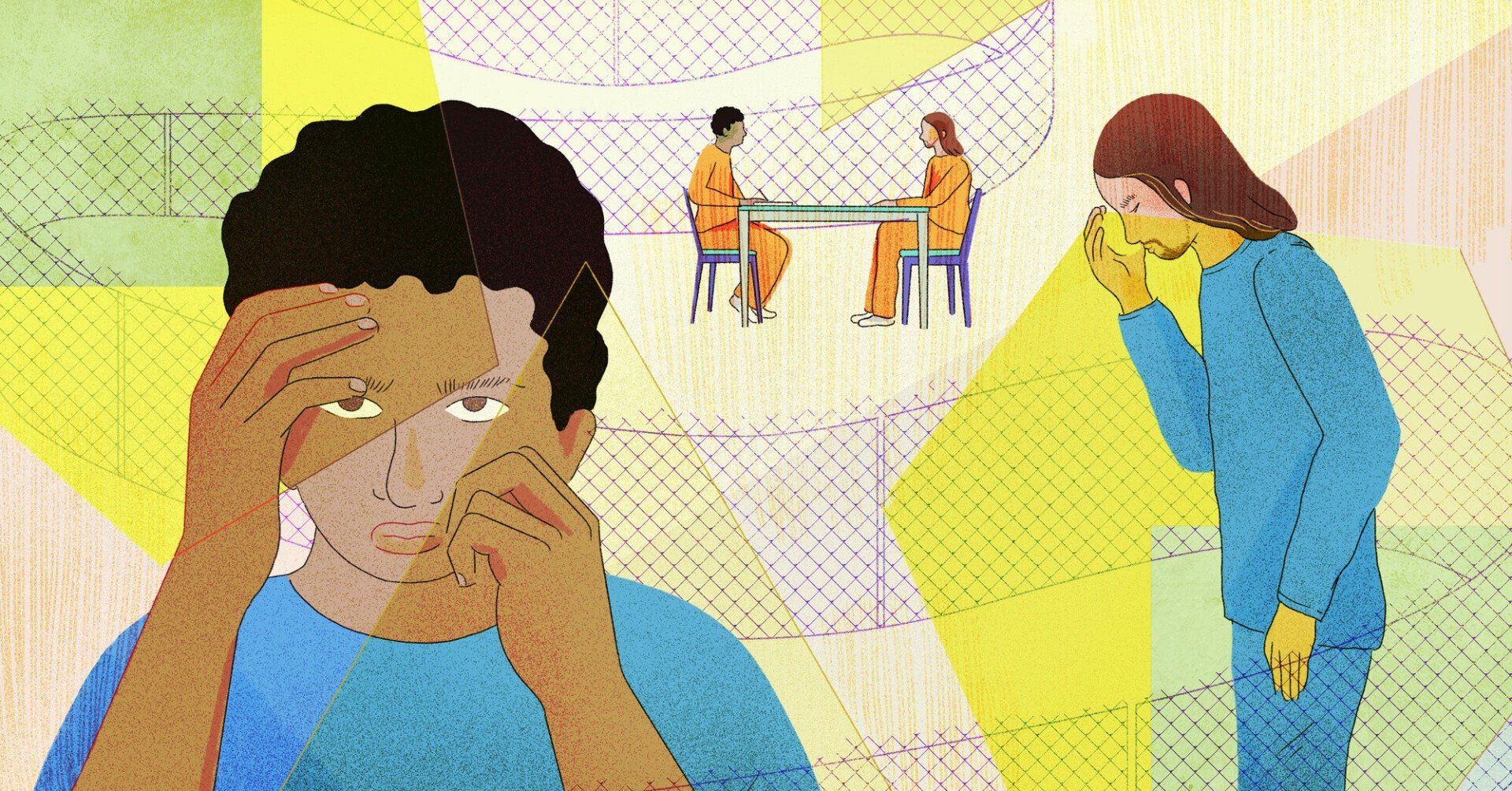Voices of the Incarcerated - Mental Health Discourse in Prisons
Saying "I'm depressed" landed Nicholas Brooks in solitary

Essay by Nicholas Brooks for The Marshall Project
I landed in jail on New York’s Rikers Island in December of 2010. My girlfriend drowned at the Soho House hotel, and I was arrested for killing her. While I was awaiting trial, my father died by suicide. I considered ending my own life after I was convicted of murder and sentenced to 25 years to life. I knew I didn’t drown my girlfriend, but I also knew she would be alive if I were a more responsible person.
When I told a staffer who did intake on Rikers Island that I was incredibly confused and depressed, he told me I shouldn't have used “the D-word” and put me on suicide watch. I was led to an empty cell, stripped naked and handed a smock. They told me this was to prevent me from using my clothing, shoe laces and sheets to fashion a noose. The isolation was torturous, and it made me think even more about suicide.
In the nearly 12 years that I’ve been incarcerated, I have never talked to a mental health professional. Even though I don’t feel safe speaking with the prison therapist, that doesn’t mean that I don’t need somebody to talk to. I grew up in therapy and understand the importance of mental health. But in such a violent environment, it’s rare for men to talk about their feelings.
After speaking to an incarcerated journalist friend of mine about my struggles with depression and thoughts of suicide, he suggested I interview other prisoners with similar issues and write about it. I liked the idea of discussing mental health without the fear of being placed in an isolation cell. And maybe understanding the struggles of others would help me get out of my own head. I set out to find a fellow prisoner willing to open up about their mental health issues. At Sullivan Correctional Facility, a maximum security prison in New York's Catskill mountains, it wasn’t hard.
*****
People with mental health conditions are overrepresented in our nation’s jails and prisons as many individuals become involved with the justice system due to a lack of adequate community mental health services. About two in five people currently incarcerated have a history of mental illness, which is a rate twice as high as the average incidence in the overall population of the United States. Despite constitutional rights for individuals who are incarcerated to receive medical and mental health care, nearly two-thirds of people with mental illness in jails and prisons do not receive mental health treatment.
To support better outcomes for people with mental illness and normalize the process of seeking help for mental health, the justice system should work in collaboration with community mental health systems to ensure people who are incarcerated receive quality, timely care. In addition to providing needed medications and treatment, people who are incarcerated should have access to supportive programs and therapies to help work toward release and successful reentry into their community.
*****
Nicholas Brooks, 36, was born in London and grew up in Los Angeles and New York City. He is currently incarcerated at Sullivan Correctional Facility in New York State. He is the president of the Academic Scholarship Organization, where he raises money for the children of incarcerated people. He has been published in Open Campus.
You can read his essay "‘You Shouldn’t Have Used the D-Word" in full at The Marshall Project.










